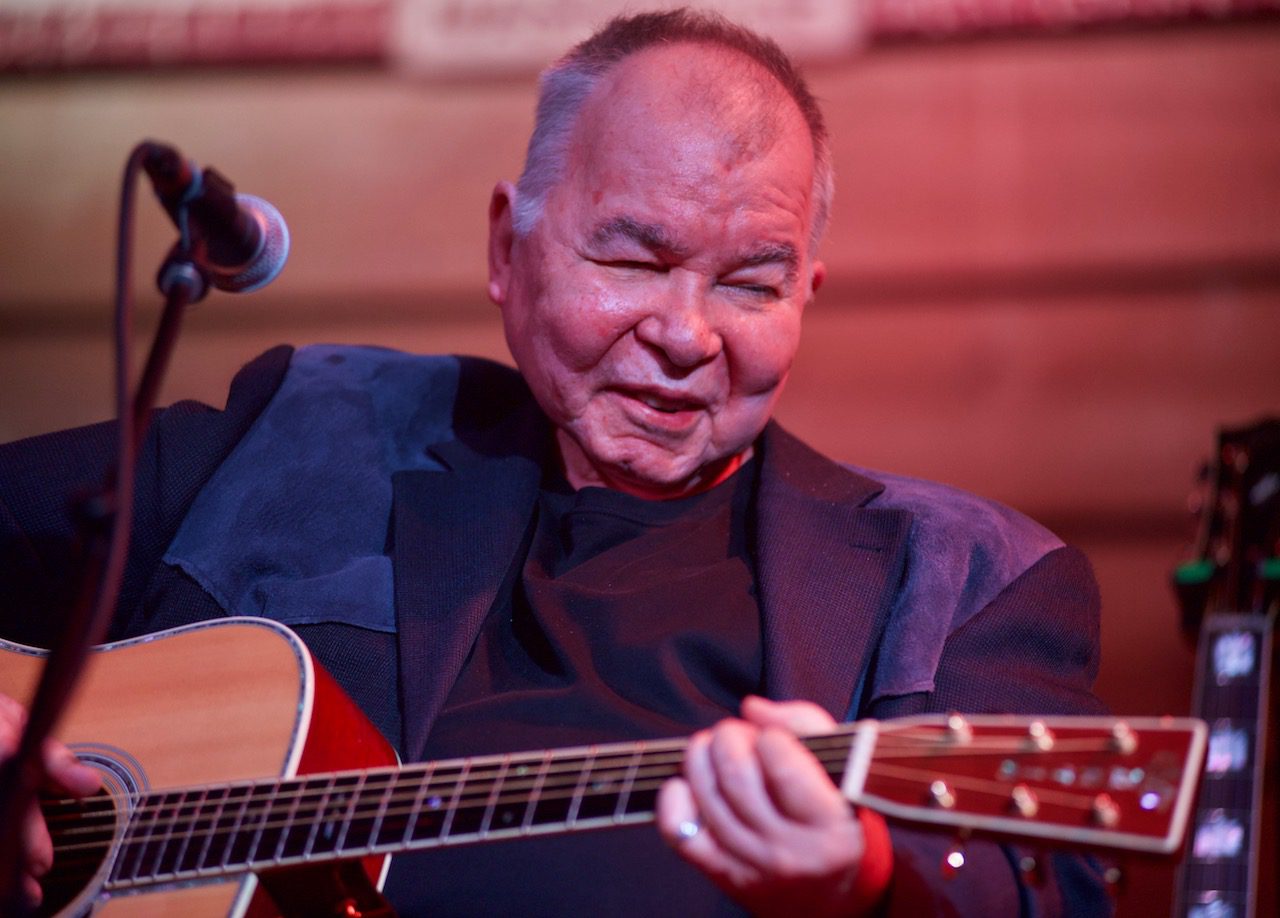Roots Music Icon John Prine Dies at 73 from COVID-19 Complications

Photos by Amos Perrine
After nine days in intensive care at Vanderbilt University Medical Center in Nashville, John Prine passed away at the age of 73 due to complications from COVID-19. Last weekend, he was intubated to assist his breathing, and family members and the Oh Boy Records team continued to update fans on his condition via social media. Prine was a high-risk patient, due to his squamous cell cancer diagnosis in 1998, lung cancer in 2013, heart surgery last summer, and recent hip injury that canceled his February tour dates.
Beloved, of course, in the roots music community, Prine was also greatly respected around the world for his vivid, often humorous storytelling. Beginning with his 1971 self-titled album — a record that Rolling Stone dubbed one of the 500 greatest of all time, replete with classics like “Paradise” and “Angel from Montgomery” — and through to his 2018 LP Tree of Forgiveness, Prine captured the simplicities and the complexities of the human existence in stark and stunning glory.
Over the course of his career, Prine released 17 studio albums of original material, the majority of which have been released on his own Oh Boy Records, founded in 1981. He won two Grammy awards (for Best Contemporary Folk Album for The Missing Years in 1992 and Fair & Square in 2006), was inducted into the Grammy Hall of Fame in 2015 and the Songwriters Hall of Fame in 2019, and won the Grammy Lifetime Achievement Award in 2020.
It’s impossible to capture the essence, the spirit of John Prine just by record numbers and sales and accolades, though. Just days after world gleefully welcomed The Tree of Forgiveness, I met Prine at his album release party in a basement bar in Nashville. The record was his highest-charting album of his career, peaking at No. 5 on the Billboard Top 200 and No. 1 the Americana/Folk chart. It also topped No Depression’s own 2018 year-end polls (from fans and staff).
Being a music journalist is funny because there’s supposed to be an element of detachment to what we do. We’re trained to strive for the ideals of journalistic objectivity and integrity — reporting on stories and writing criticism without personal, financial, or institutional bias.
But on the music side, I’d wager most of us got into this crazy profession because we care so much about the art being made. So when we meet our heroes outside of on-the-record interviews, there’s often an internal tug-of-war about how to react. On one hand, it’s important to maintain a cool professionalism. On the other, though, most everyone who makes something from nothing wants to know how their art makes people feel better.
At that party two years ago, I followed my publicist pals around the venue asking them if they wouldn’t mind maybe introducing me, if like, you know, he might feel up to it? They laughed at my awkward shuffling until suddenly, I was face-to-face with the legend himself.

That meeting led to Prine’s closing essay about songwriting for our Spring 2019 issue, “Standards & Stanzas,” and a conversation with Kelsey Waldon about bourbon for the sold-out Fall 2019 issue, “Wellness.”
Prine was also so generous with his time and unabashedly supportive of people and projects he believed in. He didn’t have to talk to me about or compliment No Depression that night or continue to work with us in the future. And it was obvious during our interview last summer how much he genuinely enjoyed mentoring Waldon and releasing her latest record, White Noise, White Lines, on Oh Boy Records.
So many people are better equipped to eulogize the famed singer, but that universal adoration was also part of his magic: making everyone feel welcome and special in his presence.
No Depression’s print edition always has a page in the back with brief bios for everyone who contributed. Prine’s was always one of my favorites, describing himself as “a smiling, shuffling force for good.” We’re honored to have worked with him so much and to have been able to share his work with all of you.

John Prine and Kelsey Waldon, left, taste bourbon for a story in the Fall 2019 issue of No Depression. (Photo by Stacie Huckeba)
Prine is survived by his wife and manager, Fiona, and by three sons and several grandchildren. In a statement posted on social media Wednesday, Fiona asked that in lieu of flowers or gifts, the family asked that a donation be made to one of the following nonprofit organizations:
thistlefarms.org
roomintheinn.org
nashvillerescuemission.org
To help remember Prine doing what he loved best — performing for his fans, often with other musicians whom he was so generous in supporting — here are some photos from the collection of ND columnist and photographer Amos Perrine:
- Photos by Amos Perrine

































